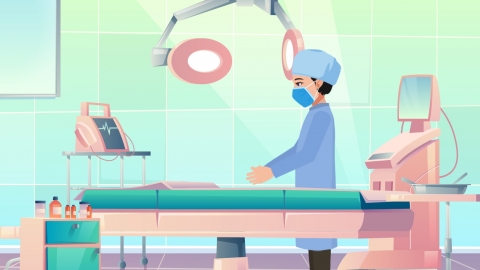Why does hernia require surgical treatment?
In general, the main reasons why hernias usually require surgical treatment include preventing incarceration of herniated contents, avoiding tissue ischemia and necrosis, eliminating recurrent protrusion symptoms, repairing weakened areas of the abdominal wall, and reducing the risk of complications. If discomfort occurs, it is recommended to seek timely medical evaluation and treatment at a正规 hospital. Specific explanations are as follows:

1. Preventing Incarceration of Herniated Contents
A hernia occurs when intra-abdominal tissues protrude through a weak area in the abdominal wall. Without surgery, the protruding intestine or omentum may become trapped within the hernial sac and cannot be reduced, leading to incarceration. This causes severe pain and can seriously impair blood circulation.
2. Avoiding Tissue Ischemia and Necrosis
If incarceration persists for too long, the blood supply to the protruded tissue may be compromised, leading to ischemia and eventually necrosis. Intestinal necrosis may trigger serious conditions such as peritonitis and septic shock, which threaten life safety. Surgery is a key method to prevent this progression.
3. Eliminating Recurrent Protrusion Symptoms
When left untreated, activities such as standing, coughing, or straining during bowel movements increase intra-abdominal pressure, causing the herniated contents to repeatedly protrude. This not only interferes with daily activities but may also gradually enlarge the hernial sac and further expand the weakened area of the abdominal wall, worsening the condition.
4. Repairing Weak Areas of the Abdominal Wall
Surgery can repair the defect in the abdominal wall by suturing or reinforcing the weakened area with a mesh implant. This addresses the anatomical basis of hernia formation, prevents recurrence of protrusion, and achieves a curative effect—something that non-surgical methods cannot accomplish.
5. Reducing Risk of Complications
Long-term untreated hernias may lead to complications such as intestinal obstruction and adhesions, increasing the difficulty of subsequent treatment and patient suffering. Timely surgery can effectively reduce the likelihood of these complications and protect the patient's health.
In daily life, patients should avoid strenuous exercise and heavy physical labor, minimize sudden increases in abdominal pressure, and take preventive measures such as preventing constipation and controlling chronic cough. If a hernia becomes irreducible and is accompanied by pain, immediate medical attention is necessary to avoid delays that could lead to serious consequences.






